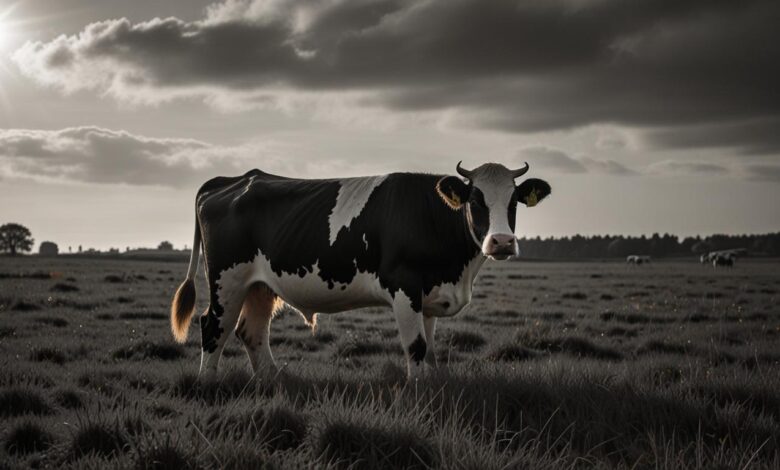Denmark Introduces Ground-Breaking Carbon Tax on Livestock to Reduce Emissions

Denmark has unveiled a pioneering plan to tackle greenhouse gas emissions from livestock, introducing a progressive carbon tax scheme. The initiative, part of the new ‘Green Tripartite’ agreement, aims to cut emissions and support the industry’s transition towards sustainability.
Denmark has announced a pioneering initiative aimed at reducing greenhouse gas emissions from its agricultural sector, focusing particularly on livestock. This is part of a new “Green Tripartite” agreement involving the government, environmental organizations, agricultural associations, and unions.
Agriculture is a notable contributor to global greenhouse gas emissions, accounting for approximately 14.5% of all anthropogenic emissions, according to the UN’s Food and Agriculture Organization. Livestock is a significant focus due to its substantial emission of methane and other environmental challenges, including deforestation and resource use.
Denmark plans to introduce a ground-breaking carbon tax on livestock starting from 2030. Initially, an effective tax of DKK 120 (USD $17) per metric ton of CO2e will be charged, rising to DKK 300 (USD $43) by 2035. The proceeds from the tax will be reinvested into the industry as a transition support pool to aid the sector’s green transformation. This will be revisited in 2032.
In addition, the initiative includes the creation of a DKK 40 billion (USD $5.7 billion) Green Area Fund focusing on afforestation and land conservation projects, along with a DKK 10 billion (USD $1.4 billion) subsidy scheme for biochar storage. The government anticipates these measures will cut emissions by 1.8 million tonnes of CO2e by 2030.
This initiative marks Denmark as the first country to impose a carbon tax on agriculture, setting a precedent for other nations focused on achieving climate neutrality by 2045. The broad political and industry support for the plan suggests its likely approval by the Danish parliament.
Tax Minister Jeppe Bruus emphasized the initiative’s historic nature and its role in reaching Denmark’s climate goals. However, EY EMEIA Sustainability Tax Leader Alenka Turnsek highlighted potential challenges, noting that a unilateral carbon tax might disproportionately affect Danish farmers and suggested that an EU-wide pricing mechanism could be more effective.
Denmark’s initiative contrasts with New Zealand’s recently halted similar proposal due to resistance from farmers. However, New Zealand continues to explore other methods to reduce methane emissions from livestock.








